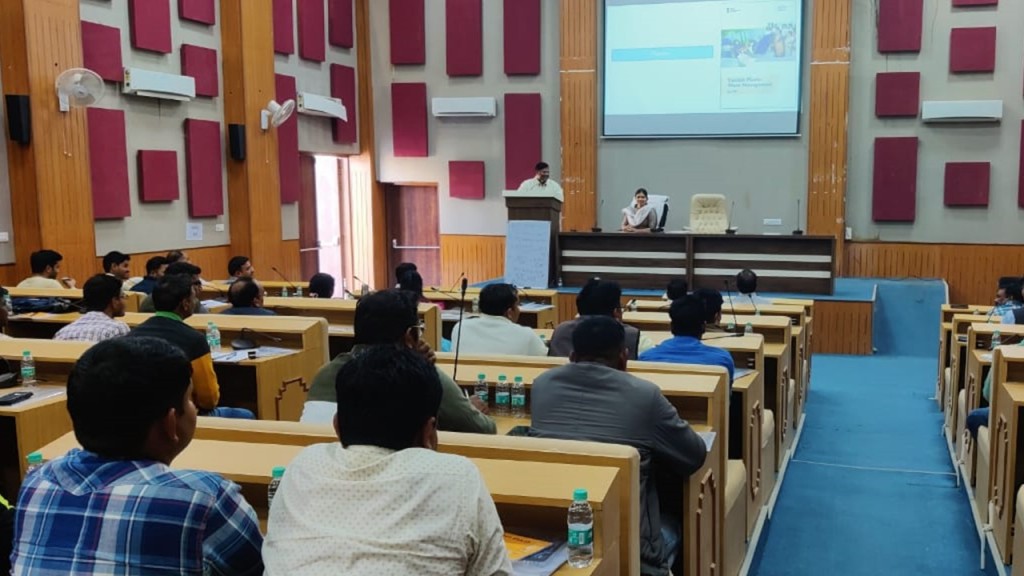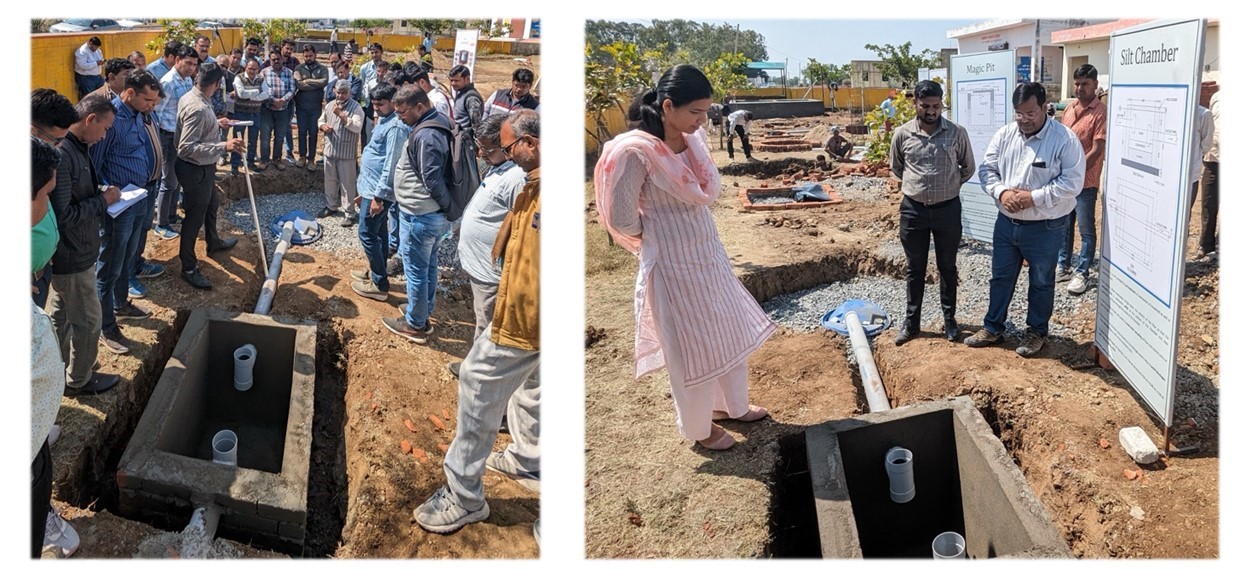Introduction:
In the pursuit of achieving and sustaining Open Defecation Free (ODF) plus status, Rajasthan has focused on accelerating the implementation and strengthening the Operation and Maintenance (O&M) of Solid and Liquid Waste Management (SLWM) infrastructure. The state, with support from UNICEF, conducted the comprehensive training to accelerate SLWM implementation that incorporated learnings from the SBM(G)- Phase 1 and the bottlenecks faced during the implementation of SLWM technologies collated through evidence-based field findings and reviews done by the state and UNICEF.
Process:
Under the leadership of the District Collector, a two-day hands-on training session was organised with a total of 60 participants from Kekdi, Ajmer, and Beawar Districts. It was equipped with technical and administrative teams comprising of Assistant Engineers (AEs’), Junior Engineers (JEs’), Junior Technical Associates (JTAs), Block Development Officers (BDOs) and Block Coordinators (BCs) with locally relevant information and essential skills needed for SLWM planning, implementation, and monitoring. The training addressed localized challenges and showcased the establishment of Rajasthan’s inaugural “Sanitation Park” in Lasadiya village, highlighting the SLWM technologies that were tailored to the district’s typology and demographics covering both household and community level assets.
Key Outcomes:
The training resulted in a deepened understanding of SLWM operations, composting, and correct construction methodologies among participants’. The detailed explanation and information on the material provided at the Sanitation Park bolstered stakeholders’ capacity, including masons, who emerged as crucial allies in promoting SLWM adoption. The training also heightened awareness of climate resilient SLWM practices and emphasized the importance of ongoing maintenance for environmental sanitation.
Way Forward & Conclusion:
Building on this momentum, Rajasthan is committed to sustaining progress through continued stakeholder capacity building (including sanitation workers) enabling O&M of SLWM technologies, and replication of sanitation parks. Community engagement shall remain central to the work, with plans for further training, exposure visits, and integration of SLWM practices in educational institutions. Rajasthan’s innovative approach underscores its dedication to a cleaner, healthier future for all.
With inputs Mr. Rushabh Hemani, WASH Specialist, UNICEF, Rajasthan at rhemani@unicef.org
For more information: Contact Bhoopen Jarwal, LWM Specialist at bhanujarwal94@gmail.com



